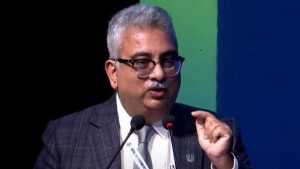In a groundbreaking development poised to reshape Nepal’s aviation landscape, the Adani Group, helmed by Indian billionaire Gautam Adani, has signaled a keen interest in the operational and construction facets of four crucial airports in the country. This strategic move comes on the heels of the Civil Aviation Authority of Nepal (CAAN) initiating a transformative process to involve the private sector through the Public Private Partnership (PPP) model for airport development.
Recent high-level discussions between representatives of the Adani Group and CAAN Director General Pradeep Adhikari have shed light on the ambitious plans that could potentially alter the dynamics of Nepal’s aviation industry. This move follows CAAN’s decision to bring private entities into the operations of three international airports, including the Tribhuvan International Airport (TIA), and the construction of the much-anticipated Nijgadh International Airport.
The backdrop for CAAN’s pursuit of private sector involvement stems from the challenges faced in effectively operating the Pokhara Regional International Airport (PRIA) and Gautam Buddha International Airport (GBIA), both of which were constructed with financial assistance through loans. Faced with operational hurdles, CAAN is now actively exploring partnerships to revitalize these airports and has submitted a comprehensive proposal to the Ministry of Culture, Tourism, and Civil Aviation, seeking approval for the operation of four airports under the PPP model.
The Adani Group, through its representative Anil Patani and his team, arrived in Nepal following CAAN’s initiation of the PPP model for airport development. A representative from the private sector, who participated in the meeting, disclosed, “Adani Group is willing to take on the mantle of managing these airports,” highlighting the potential for a transformative partnership between the Indian conglomerate and Nepal’s aviation authorities.
During a meeting between CAAN’s Director General Adhikari and Adani Group representatives, it was clarified that the modality for private sector involvement had yet to be finalized. Adhikari mentioned, “We have decided to involve the private sector at the airports,” affirming that a global tender would be announced once the modality reached completion.
While CAAN has taken decisive steps towards private sector engagement, the proposal’s realization rests on the approval of the cabinet through the ministry, ensuring a transparent and competitive selection process for the involved companies. Adani Group, with a notable track record of managing seven international airports in India under Adani Airport Holdings Limited, has expressed its intent to extend its expertise to the Nepalese aviation sector.
The absence of international flights from PRIA and GBIA has underscored the necessity of the Nijgadh International Airport, currently under construction in Bara. A CAAN official remarked that given the success of TIA, international investors are expected to show interest in the development and operation of other airports in Nepal.
CAAN Spokesperson Jagannath Niraula emphasized that the global tender would only be initiated after the government formally approves the PPP model and a detailed modality is meticulously prepared. “They will be selected through global competition,” Niraula clarified, dispelling any notion that a company could secure the tender without participating in a competitive process.
Prime Minister Pushpa Kamal Dahal has reportedly voiced support for private sector involvement in the management and construction of international airports, reflecting a shift in the government’s stance. This stands in stark contrast to a historical incident in 2069 BS when the Supreme Court intervened, halting the government’s attempt to hand over the management of TIA to an Indian company, IA&FS. The court ruled that Section 7 of the Investment Board Act 2068, which lacked a mandate for competition, contravened legal provisions.
As Nepal navigates the intricate process of integrating the private sector into its airport development plans, the Adani Group’s expression of interest introduces a compelling dimension to the country’s aviation narrative. The outcomes of these deliberations are poised not only to define the future of these airports but also to establish a precedent for potential private sector involvement in broader infrastructure projects across Nepal. The evolving narrative promises to shape the contours of Nepal’s aviation sector for years to come.
















Comments